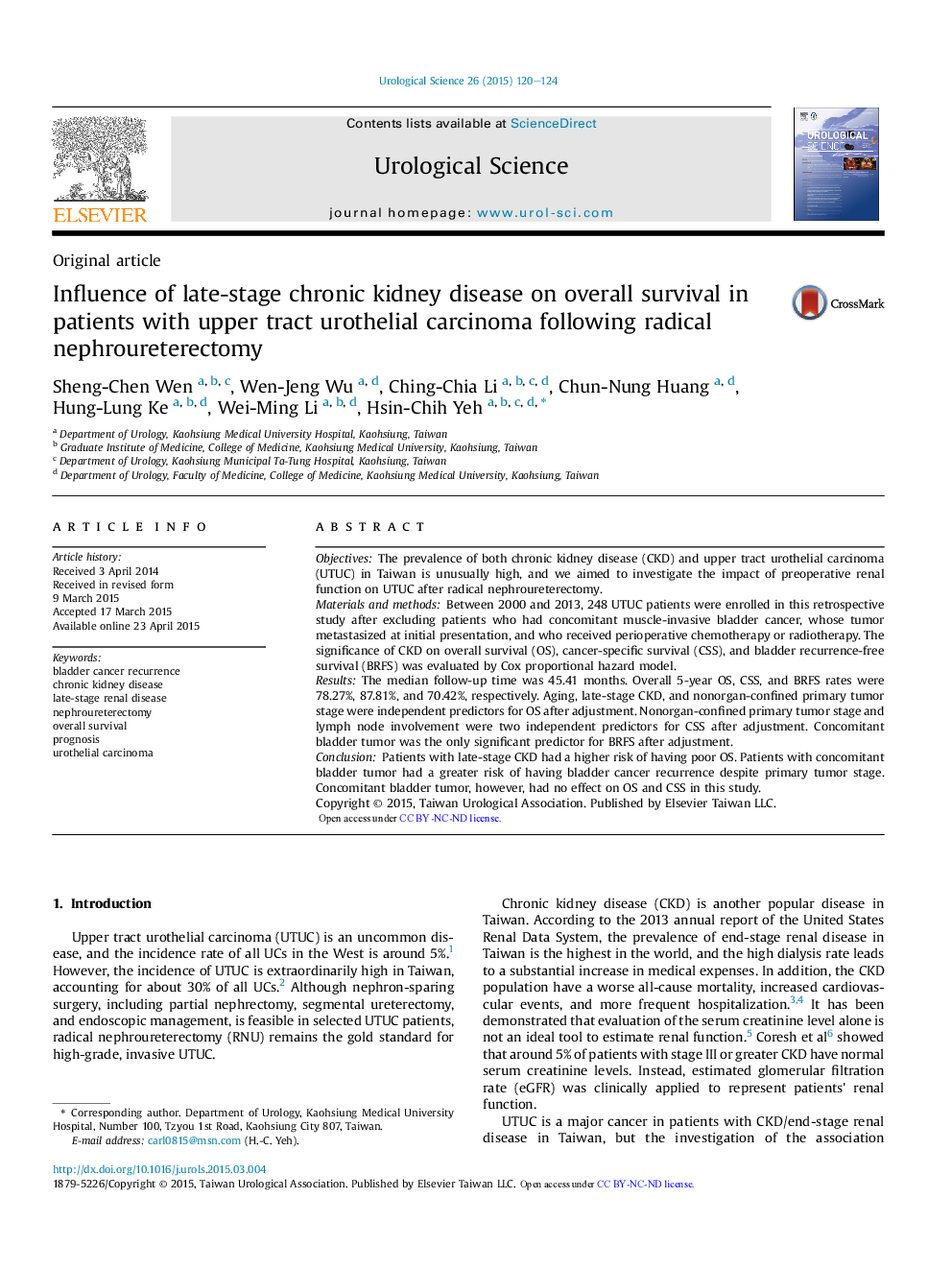| Article ID | Journal | Published Year | Pages | File Type |
|---|---|---|---|---|
| 4276246 | Urological Science | 2015 | 5 Pages |
ObjectivesThe prevalence of both chronic kidney disease (CKD) and upper tract urothelial carcinoma (UTUC) in Taiwan is unusually high, and we aimed to investigate the impact of preoperative renal function on UTUC after radical nephroureterectomy.Materials and methodsBetween 2000 and 2013, 248 UTUC patients were enrolled in this retrospective study after excluding patients who had concomitant muscle-invasive bladder cancer, whose tumor metastasized at initial presentation, and who received perioperative chemotherapy or radiotherapy. The significance of CKD on overall survival (OS), cancer-specific survival (CSS), and bladder recurrence-free survival (BRFS) was evaluated by Cox proportional hazard model.ResultsThe median follow-up time was 45.41 months. Overall 5-year OS, CSS, and BRFS rates were 78.27%, 87.81%, and 70.42%, respectively. Aging, late-stage CKD, and nonorgan-confined primary tumor stage were independent predictors for OS after adjustment. Nonorgan-confined primary tumor stage and lymph node involvement were two independent predictors for CSS after adjustment. Concomitant bladder tumor was the only significant predictor for BRFS after adjustment.ConclusionPatients with late-stage CKD had a higher risk of having poor OS. Patients with concomitant bladder tumor had a greater risk of having bladder cancer recurrence despite primary tumor stage. Concomitant bladder tumor, however, had no effect on OS and CSS in this study.
